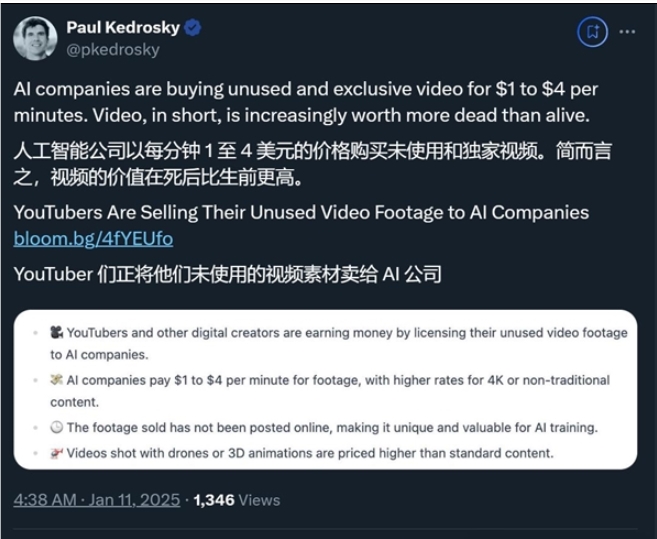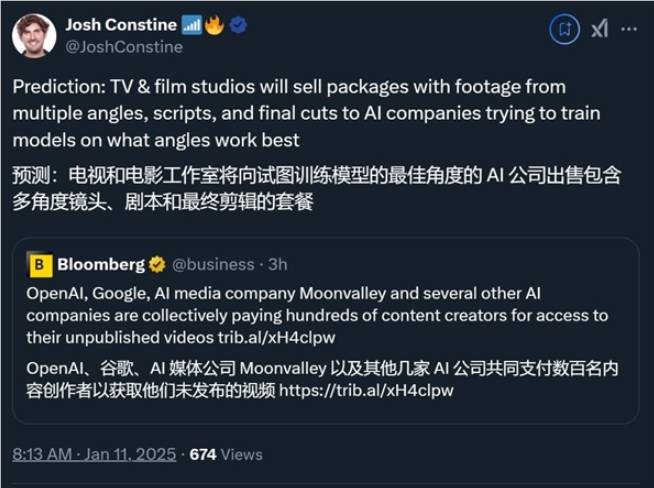Recently, a Bloomberg report has attracted widespread attention in the content creation circle. It is reported that technology giants such as OpenAI and Google are acquiring video content that UP owners have not released at high prices to train AI models. This move not only opened up new revenue channels for UP hosts, but also gave new value to those videos that were originally "hidden".
The report pointed out that these tech companies particularly favor video materials that have never been published, especially unpublished content created for platforms such as YouTube, Instagram and TikTok. The price per minute of video is between $1 and $2, and the price will be further improved if the video quality is higher, such as 4K resolution or material shot by drones. This trading model not only allows UP owners to profit from idle resources, but also makes up for the economic losses they may face in the video creation process to a certain extent.

Paul Kedrosky, a research assistant at MIT, expressed his feelings about this phenomenon, pointing out that the value of videos is higher "after death" than "in lifetime", which reflects the gradual management and use of video content creators. Rewarded. Meanwhile, former editors of TechCrunch also predict that in the future, TV and film production companies may sell complete video packages including scripts and multi-lens material to AI companies to better train AI models.

At present, many intermediary companies have participated in this emerging industry chain to help UP hosts negotiate with AI companies. For example, Troveo AI has paid more than $5 million to content creators to collect video footage and sell it in packages. Although this trend provides new sources of income for content creators, industry insiders also remind that this window period for making money may not last too long, and creators need to seize the opportunity.
In addition, to protect the rights of creators, transactions often include clauses that prevent copying, ensuring that AI companies cannot imitate the style of UP owners or use video footage in ways that damage their reputation. While Google and OpenAI have not yet made official comments on this, content creators are generally optimistic about the new model.
With the continuous development of AI technology, content creators have gradually gained more voice in their interactions with technology companies. Against this background, the future of UP hosts seems to be full of infinite possibilities. They can not only gain attention by creating high-quality content, but also achieve additional benefits through transactions of unreleased materials, which undoubtedly injects new vitality into the content creation industry. .